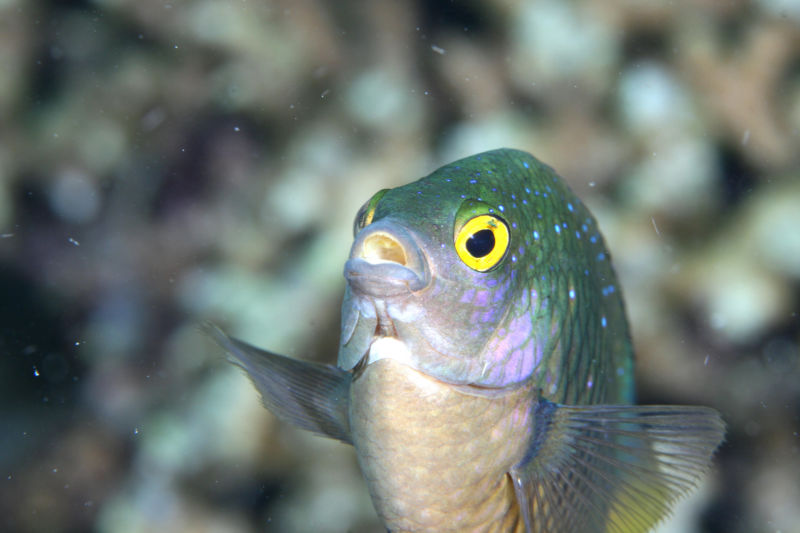Replication study challenges work on fish and ocean acidification

Enlarge / Local Fish Surprised by Results of Experiment. (credit: Klaus Stiefel / Flickr)
In the academic equivalent of "shots fired," a newly published paper evaluates a number of prior studies on the effects of ocean acidification on fish-and finds it can't replicate any of the results.
A number of studies in recent years has conducted experiments on the behavior of coral fish in normal and high-CO2 water. (Increasing dissolved CO2-which is happening due to human-caused emissions-lowers the pH of seawater, hence the term "acidification.") These studies have found some surprising impacts, from a failure to recognize and avoid the smell of a predator to a loss of "handedness" (preferring left or right turns) during development. These behaviors have been linked to CO2 interfering with a specific receptor in the brain.
Individual variationBut a group of researchers found itself skeptical of these results and hatched a plan to replicate them in a standardized experimental setup. Over the course of several years, the researchers repeated some of these experiments with a variety of fish species, carefully documenting and filming each step to create an accessible database of results. And those results seem markedly different.
Read 11 remaining paragraphs | Comments